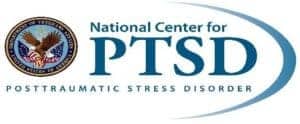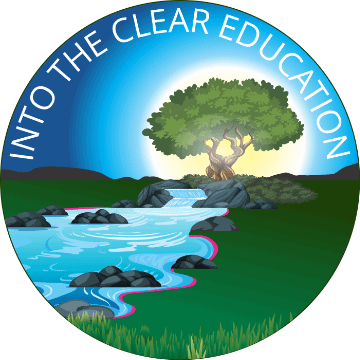Post-traumatic stress disorder, or PTSD, describes a real condition with a variety of symptoms. It can develop in people that have suffered trauma in the course of wars (current military and veterans), on the street, in domestic violence, in natural disasters, medical illness, accidents, abuse, and other events. The fear and anxiety that accompany the event or events become engrained within a person.  Although this innate response serves to protect the person during the actual event, this “fight-or-flight” response may continue for some, long afterwards, causing feelings of being in danger even when they are not (Thomas Gibbons-Neff, 2014). There is a lot of very helpful information available to those suffering or who know someone who is suffering from PTSD and other related conditions. Go to www.ptsd.va.gov. People with these diagnoses can learn more about what they are dealing with, connect to others, and find ways to heal.
Although this innate response serves to protect the person during the actual event, this “fight-or-flight” response may continue for some, long afterwards, causing feelings of being in danger even when they are not (Thomas Gibbons-Neff, 2014). There is a lot of very helpful information available to those suffering or who know someone who is suffering from PTSD and other related conditions. Go to www.ptsd.va.gov. People with these diagnoses can learn more about what they are dealing with, connect to others, and find ways to heal.
Moral Injury
Another related area to PTSD is moral injury. Unlike post-traumatic stress, which is a result of a fear-conditioned response, moral injury is a feeling of existential disorientation that manifests as intense guilt. Engaging in an ethical conversation as to what happened in the past and reconciling that event with their present life in necessary. A strong connection with a community and other people is important to re-establish personal identity, purpose, and well-being (Thomas Gibbons-Neff, 2014).
The various traumatic experiences people go through whether brought upon them against their will, having no real choice of their own, or whether it is an event the person has willingly engaged in, will often leave the person feeling isolated. Attempting to share with family, loved ones, pastors, priests, and counselors can prove challenging. As well, family members may have difficulty understanding what their loved one has gone through, and how to help them. Let’s look more closely at the elements of PTSD, so we can better understand.
PTSD Diagnosis
The National Institute of Health website describes the 4 areas that must be present with a PTSD diagnosis. The first is a re-experiencing symptom. These include flashbacks (with physical symptoms like racing heart or sweats), bad dreams, and frightening thoughts. There are also avoidance symptoms which involve staying away from people, places and things connected to the traumatic event, or avoiding emotions, thoughts, and feeling related to the event. When avoidance symptoms are experienced, a person may alter their daily routine. Someone who experiences a car accident my stop driving for example. There are also arousal and reactivity symptoms. These are described on the NIH site as being easily startled, feeling tense or “on edge,” having difficulty sleeping, or having angry outburst. The fourth area described is cognition and mood symptoms. These include trouble remembering key features of the traumatic event, negative thoughts about oneself or the world, distorted feelings like guilt or blame, and/or loss of interest in enjoyable activities. These symptoms we are told can worsen after the event but are not as a result of substance abuse or injury. For more information about PTSD go to: (https://www.nimh.nih.gov/health/topics/post-traumatic-stress-disorder-ptsd/index.shtml).
Open Communication
The importance of finding a good counselor and a place where you can feel safe and able to begin or continue to openly talk about your individual experience and challenges cannot be emphasized enough. Even though we often experience trauma feeling alone, healing from it will often happen together with others and in community.
Effective Therapies
There are some amazing therapies available today that truly can unlock the burdens and long struggles that so many are suffering through today. Traditional therapies and medicines can and have helped thousands with PTSD and Traumatic Brain Injury (TBI). There are complementary and alternative medicine (CAM) treatments for PTSD also. One therapist named Melissa Walker has developed an alternative and wonderful treatment for treating PTSD and TBI. Her grandfather suffered in silence for much of his life, and she was led to pursue a way of helping veterans heal through art therapy. She has worked at the biggest veteran’s medical center in the country, the Walter Reid National Military Medical Center. Her Ted Talk highlights how the program came to be and some of the incredible results. Watch this inspiring and insightful perspective on treatment and healing of PTSD, moral injury, and TBI.
Watch Video Now
The program created by Melissa Walker has helped thousands to unlock the trauma inside and has helped to separate that trauma from people’s identities. So many who have worked with Melissa and others in making a mask to express and sort through various types of trauma are experiencing healing, renewal, and freedom from these past events. Their current lives are dramatically improved. As she expresses, they are no longer held captive by these traumatic re-occurring images and experiences. They can leave them behind and walk out into their life anew.
***If you believe you may benefit from this type of therapy, you can search for art therapists who specialize in working with PTSD and TBI. Talk to your current doctor or counselor about connecting with this or other alternative therapies.***
Accidents, Injury, and Abuse
It isn’t just soldiers and military personnel that are struggling with mental health issues today. This is very much a real situation for the general population and civilians too. People who have experienced accidents, that have physical and emotional injury as a consequence, sometimes have PTSD and related symptoms. There are also many who are experiencing roadblocks and challenges from various kinds of abuse in their lives. This can be contributing to substance use and/or abuse. Even though there is no catch all or easy solution, knowing you are not alone, and hearing about how others have and are dealing with these issues can be a great benefit. Opening up about trauma, often with the help of a counselor, is not easy, but it is possible to work through. The love we receive from counselors, pastors, friends, and family, and the support of group work has many long-term benefits.
Here are some incredible stories of people who have and are recovering from traumatic injury. The first is the story of Janine Shepherd, who was headed for the Olympics as a cross-country skier. After being hit by a utility truck while on a bike training ride in the mountains, her whole life changed. She had a choice to make.
Watch Video Now
https://blog.ted.com/7-powerful-stories-of-recovery-after-injury/ (18 mins)
The words we choose to speak to others in sharing our experiences, strength, hope, trauma, injury, and pain, etc...are important to healing, letting go, recovery, and living a happy and fulfilled life. Healing comes in God’s timing. He knows what we are ready to handle. Trusting there is a good and vibrant future ahead for us that is free from drugs and alcohol is a good start. Follow any of the links below for more information about PTSD, moral injury, and healing from abuse.
Question for Reflection: If you could make a mask and have a safe place to get all your anger out, what are some of the anger issues that would come out. Spend some time journaling on the topic.
Helpful Links
National Institute of Health- Veterans and Military Health Information Page
https://medlineplus.gov/veteransandmilitaryhealth.html
National Center for PTSD
Article on Moral Injury
https://www.stripes.com/opinion/why-distinguishing-a-moral-injury-from-ptsd-is-important-1.333520
Book on Healing Moral Injury
More videos on recovery from abuse
https://www.ted.com/playlists/471/let_s_end_the_silence_around_a
